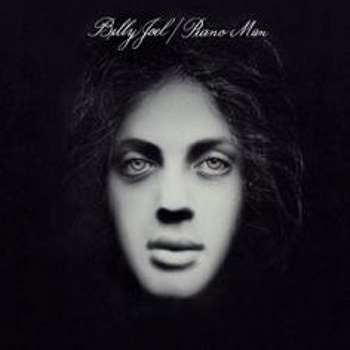 Piano Man – Billy Joel
Piano Man – Billy Joel
This sophomore effort gave him the sobriquet for life. Troubled by the release of his debut album which was recorded at the wrong speed, Billy Joel was determined to get a taste of success. He hustled a deal with Columbia Records and made an LP record which started his journey towards a glorious and hugely lucrative career.
Overall the album is inspired by Elton John’s ‘Tumbleweed Connection’ and the fact that the piano is Joel’s main instrument, makes it seem like that in a bigger way. Lyrically, it has some good character sketches, stories and a grand autobiographical song….well, almost autobiographical.
The LP kicks off with the country flavoured, up-tempo, banjo and piano filled Travelling Prayer. This urgency melts into the slow tempo piano and harp of the title track. Joel took a leaf out of his California break as a lounge pianist to narrate vignettes about lost souls (including himself), which, ever since has become a standard for other lost souls. One just has to pay heed to the now iconic lyrics.
And the waitress is practising politics
As the businessman slowly get stoned
Yes, they’re sharing a drink they call loneliness
But it’s better than drinkin’ alone
Remembering the times, Joel had once said, “I got free drinks and union scale, which was the first steady money I'd made in a long time."
The track became Joel’s first major hit, peaking at #25 on Billboard Hot 100. In 2016 the Library of Congress selected ‘Piano Man’ for preservation in the National Recording Registry for its "cultural, historic, or artistic significance."
The last two tracks of Side 1 are You’re My Home and The Ballad of Billy the Kid. While the former is a sweet love song dedicated to his then wife, the latter is a fictional account of the legendary gunfighter Billy the Kid. Here, Joel exhibits his storytelling techniques.
Side 2 begins with the country rocker Worst Comes to Worst which then moves on to a couple of ballads and a love song. But side 2 clearly belongs to the anti -drug, Captain Jack…the closing track of the album.
While certain critics thought that the song promotes ‘drugs and masturbation’, in the words of Joel himself, "It's really a song about what I consider to be a pathetic loser kind of lifestyle. I've been accused of, 'Oh, this song promotes drug use and masturbation', No, no, no. Listen to the song. This guy is a loser." From an album perspective, the work isn’t as cohesive as some of his later albums would be, but it’s the most important landmark in Billy Joel’s career. This is when people started taking him seriously. This is when he started fleshing out his lyrical and melodic stance. This is when he became the Piano Man.
Year:1973
Genre: Country Rock, Pop Rock,
Duration: 42:51
Label: Family Productions / Columbia
Producer: Michael Stewart
Rating: ****
LP Courtesy: Sony DADC
Reviewed by Meraj Hasan
Meraj Hasan is a Mumbai based communication professional (and an amateur poet/musician) with a passion for listening to music the vinyl way. His 25 year old Technics turntable along with a humble collection of LPs across genres like Classic rock, Classical, Blues and Jazz (amongst others) are his prized possessions.
He can be reached at +91 9833410791 or email: meraj.hasan@gmail.com
